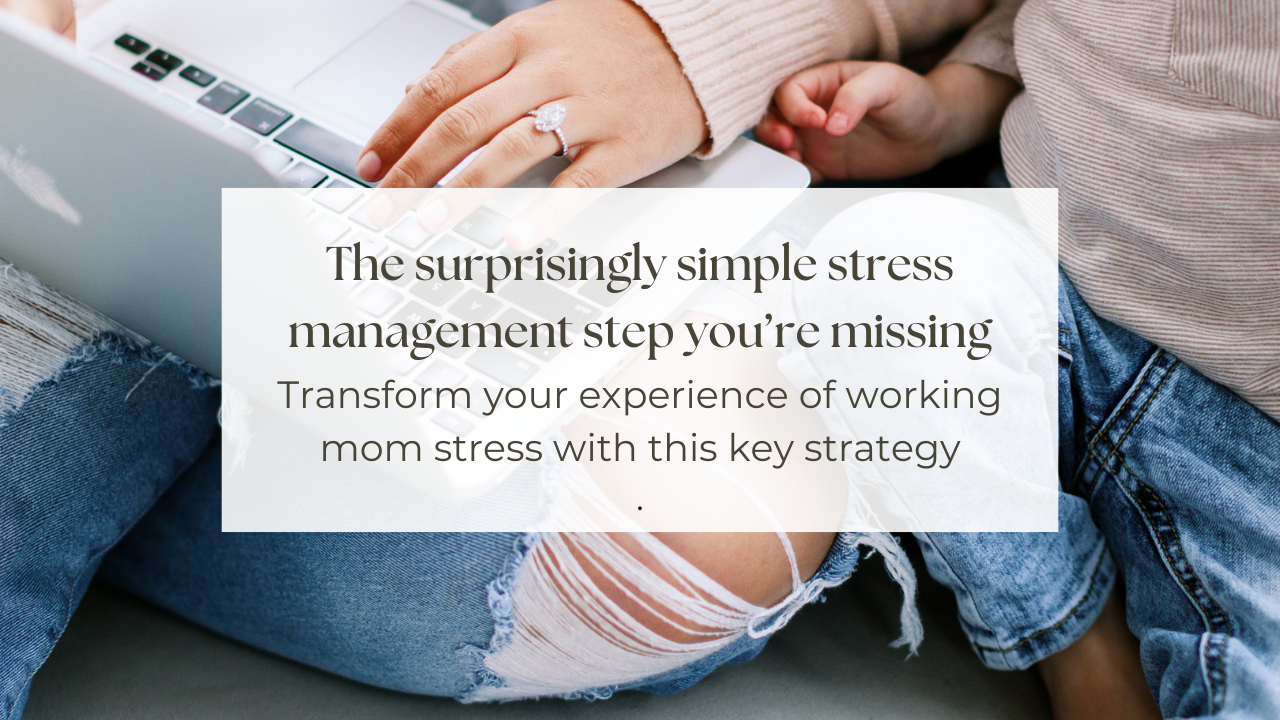Oct 02, 2024

Let's transform your experience of working mom stress with a KEY strategy: learning how to harness the power of your body to influence your mind, your mood, and your ability to navigate stress.
In today's episode we discuss:
- The role of your nervous system plays in your experience of stress.
- The 4 key aspects of your mind that your body influences: your habits of thought, your ability to work through emotions, your perceptions, and your habits of action.
- Simple ways to signal safety to your body, giving you the best brain possible to work through stress.
- An invitation to map your nervous system with me and a Toolkit to find regulation in 10 minutes or less.
The Calm Kit self-regulation program for working moms will help you feel replenished, deeply connected from within, and able to show up to your life in a way that you love.
Life is in flux.
You don't have to be.
With Luminary LifeKit Courses + Toolkits
Access the high-quality, life-changing health information, tools and results that Cara has found most effective for herself and her clients.

